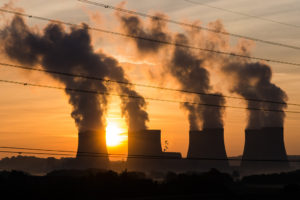Black Rush Life: Working the Oil Fields of North Dakota
For some Americans, a North Dakota oil rig is the only place to get a job. The days are long, and compared to what they're used to making, the pay is big. But the relative rewards come with deep personal costs, as a new movie by a pair of Brooklyn filmmakers shows.
For some Americans, a North Dakota oil rig is the only place to get a job. The days are long, and compared to what they’re used to making, the pay is big. But the relative rewards come with deep personal costs, as a new movie by a pair of Brooklyn filmmakers shows.
Due to advancements in oil extraction technology, the petroleum industry boomed big in the state in recent years. It employed 5,000 people in 2005. Today it has more than 30,000 workers.
The 14-minute film, created by Christina Clusiau and Shaul Schwarz, introduces us to three Americans working the rigs, supply lines and trucking lanes. Jarrod Troumbly couldn’t find a job in his hometown in Grand Rapids, Minn., “or pretty much anywhere,” he says. He made $93,000 over the course of a year working overtime at an extraction site on two-week stretches.
“When you’re out here working you’re a robot, and it’s really sad,” he says. “You don’t have a life out here. You’re out here to work. And you’re pretty much just another piece of equipment on the rig, working for the company, working for the man, making him a lot of money.”
“It’s a little bit depressing, sometimes,” he says. His appearance and tone of voice belie a more powerful depression than his words suggest.
Kye O’Shaugnessy broke her lease in Portland, Ore., after seeking work for a year and a half. “This [North Dakota] is the only place in the country that’s got work,” she says. She runs supplies from stock depots to the oil rigs. As a female she faces dangers that are foreign to her male colleagues.
“It’s pretty difficult to trust anybody here because everybody’s out for their own goals,” she says. “There’s not very many women here, and a lot of these guys who work in this industry, when they get their days off there’s nothing to do here but drink. And there’s a lot of testosterone. There’s assaults. There’s fights. I prefer to be safe. I mean, I carry a taser in my truck, you know? I have a bat that’s under my pillow in my bedroom.”
O’Shaugnessy speaks eloquently about the psychological hardships of her work. “The biggest challenge here is working very hard not to be depressed and being away from everyone you want to be close to,” she says. “You move out here and there’s nothing. It’s desolate. There’s beauty out here but you have to really look. You have to be very conscious of who you are and try to maintain who you are. This is not a healthy place to be.”
Craig Bitter fell out of the “car business” and was able to get a job driving a truck thanks to an acquaintance in the state. He plans to “come out here to work, get ahead and go home.”
“Certainly not everything’s about money,” he says. “But if you can’t pay the bills, everything’s about money. A couple of months ago I’d have said I’d be done by the end of the summer. But now I’m not so sure. Once you grow accustomed to having a nice paycheck, it’s hard to go back home where there’s no opportunity to make that kind of money.”
Based on the available evidence, many of the commenters below the video on Time’s website are deaf to the suffering endured by the film’s subjects. “I’m a geologist in Alberta, and all of this is normal. What’s with the melodrama?” one asks. Another has advice for the workers: “Its not easy, but then no one said life was gonna be. My advice to all the people involved is MAN UP!! Quit your bitchin’ … try focusing on the positive aspects rather than wallowing in the negative?”
— Posted by Alexander Reed Kelly.
Christina Clusiau and Shaul Schwarz at Time LightBox:
Your support matters…Independent journalism is under threat and overshadowed by heavily funded mainstream media.
You can help level the playing field. Become a member.
Your tax-deductible contribution keeps us digging beneath the headlines to give you thought-provoking, investigative reporting and analysis that unearths what's really happening- without compromise.
Give today to support our courageous, independent journalists.








You need to be a supporter to comment.
There are currently no responses to this article.
Be the first to respond.